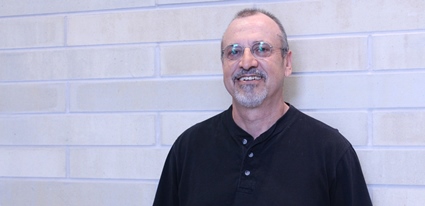Newsroom
Decision aids help patients weigh options and make choices
September 25, 2015

“This process is not to second guess the doctor,” explained Brian Cullen, reflecting on his experience with using a decision aid. “It’s about having information to make an informed choice.”
Brian Cullen had just retired when a routine annual physical in 2014 showed signs for concern. Cullen’s father had died of prostate cancer at 61, so 56-year-old Cullen and his doctor were on the lookout for signs.
Blood work and screening tests led to a biopsy. Within a month, Cullen was deep into deciding between surgery or radiation for prostate cancer. But, he soon learned that a lot had changed since the day his dad was diagnosed.
“My father never spoke about his prostate cancer. He was so scared of the disease, he would have done anything he was asked to do,” said Cullen.
Today, prostate cancer patients at The Ottawa Hospital are encouraged to use a decision aid to help them understand their condition and reflect on treatment options that include watchful waiting, radiation or surgery.
A decision aid is a series of impartial questions, either on paper or online. As patients work through the questions, they learn about the risks and benefits of the various treatments they could choose.
“The decision aid made the pros and cons very clear and it also confirmed to staff that I had enough knowledge to make an informed decision,” explained Cullen. “Treatment is an individual decision because one person may accept certain side effects that another would not. The whole process was brand new to me, but decision aids make you more comfortable about the facts.”
Dr. Dawn Stacey , a scientist and nurse with the hospital and the University of Ottawa, has been developing and implementing decision aids for more than 15 years, both nationally and internationally.
“A lot of patients are conflicted and they do not know how to weigh their options,” she explained. “Decision aids are unbiased tools that help patients understand the options, risks and side effects. They can also help patients think about what outcomes are most important and what side effects they prefer to avoid.”
Stacey is the Director of the hospital`s Patient Decision Aids Research Group, which leads the world in this area of research and is celebrating its 20th anniversary. Since its inception in 1995 by Dr. Annette O’Connor, the group has led the development of about 50 decision aids for conditions including arthritis, diabetes, various cancers and heart disease. The group has also led international teams to establish standards for about 300 decisions aids.
There is still a lot of work to do, particularly in encouraging doctors and patients to use decision aids, but satisfied patients like Cullen are helping to spread the word.
About The Ottawa Hospital
The Ottawa Hospital is one of Canada’s largest learning and research hospitals with over 1,100 beds, approximately 12,000 staff and an annual budget of over $1.2 billion. Our focus on research and learning helps us develop new and innovative ways to treat patients and improve care. As a multi-campus hospital, affiliated with the University of Ottawa, we deliver specialized care to the Eastern Ontario region, but our techniques and research discoveries are adopted around the world. We engage the community at all levels to support our vision for better patient care.
For further information, please contact
Lois Ross
Senior Communications Specialist
Ottawa Hospital Research Institute
Office: 613-737-8899 x73687
Cell: 613-297-8315
loross@ohri.ca
